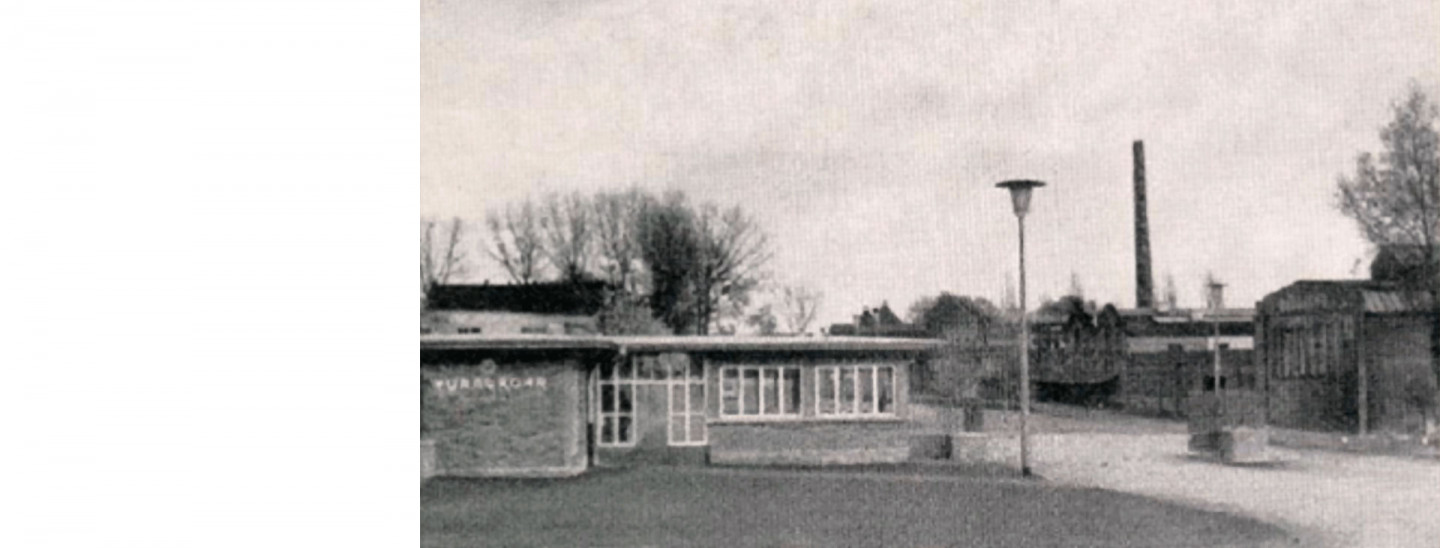

History
Success through experience
and system solutions
Building on many decades of experience, RP Technik has developed into a globally present and successful supplier of steel & glass system solutions for windows, doors, partition walls, curtain walls, and glass roofs.
The Baduhild trade union in Wickede an der Ruhr established a hydropower-operated production facility dedicated to electrical power generation and the production of oxygen, hydrogen, and nitrogen.
A large part of the oxygen produced was intended for use in autogenous welding at Vereinigte Walz- und Röhrenwerke AG, a company operating a tube manufacturing facility in Hohenlimburg since 1890. In order to avoid having to transport oxygen between Wickede and Hohenlimburg, the tube manufacturing operation was gradually relocated to Wickede. The factory in Wickede was acquired by WURAG Eisen- und Stahlwerke in Hohenlimburg and was managed from there as a branch operation. Later, in 1925, the Baduhild trade union was dissolved.
Start as independently operating company under the name of Wuragrohr GmbH. That same period also saw the transition from autogenous to electrical resistance welding.
After World War II and the almost total destruction of the plant facilities, key investments were made, and the plant was expanded. Cold profiles had already been produced there since the 1920s – from the end of the 1940s, Wuragrohr GmbH evolved into a significant supplier of welded and cold drawn precision steel tubes in Germany and abroad.
In 1951, the company split from Vereinigte Stahlwerke to become a part of Rheinische Röhrenwerke in Mülheim. In 1955, Rheinische Röhrenwerke merged with Phoenix AG, later renamed to Thyssen Rohrwerke. In 1966, Wuragrohr was acquired by Stahl- und Röhrenwerke Reisholz GmbH whose main shareholder was Baron Heinrich Thyssen-Bornemisza.
Entry into the development and marketing of windows, doors, gates, and partition walls, including accessories. At that time, the product portfolio included welded profile tubes for modern, lightweight building structures as well as “beautifully shaped, functional frames for shop windows, windows, and doors”.
Market debut of the “rp hermetic” system line. This product line was characterised by functional grooves used to accommodate seals and glazing beads. Steel doors could now be provided with decorative aluminium elements. In addition, the first curtain wall structures of mullion-transom design with screw channel were launched.
In the mid-1960s, annual production increased to over 70,000 tons.
As energy efficiency and heat insulation were gaining in importance, the company’s systems catering to these concepts became more and more sophisticated. Wuragrohr was one of the pioneers in developing and marketing thermally insulated window systems and easy-to-install curtain wall systems with screw-plug connections.
In 1970, all tubing-related activities were transferred to Mannesmann and Mannesmannröhren-Werke. All activities in the so-called flat products segment passed to the Thyssen group. From 1973 on, Wuragrohr was operated only as a manufacturing site centrally managed from Düsseldorf.
From the middle of the decade onwards, the company started to develop fireproof doors, smoke protection doors, and partition wall systems that successfully passed various tests.
In the wake of the consolidation of Mannesmannröhren-Werke and Hoesch Rohr AG into MHP – Mannesmann Hoesch Präzisionsrohr GmbH – “RP Technik GmbH Mannesmann” is established as an independent wholly owned subsidiary of MHP.
RP Technik started to focus even more on architecture systems and broadened its system portfolio:
In the windows and doors segment, highly heat insulating aluminium and stainless steel PUR composite systems were developed. Multifunctional add-on curtain wall systems with screw channels were designed for use on custom-configurable substructures of steel, timber, or aluminium.
The development of a narrow, delicate window and partition wall system laid the foundation for architecturally sophisticated and design-focused transparent system solutions. In addition, official approvals were obtained for T30 fire door and F30 fire-resistant glazing applications.
In the year 2000, RP Technik was acquired by Welser Profile AG. In 2002, RP Technik moved to a site in the immediate vicinity of the newly constructed ultra-modern Welser plant in Bönen.
RP Technik acquired ferro-wic, a subdivision of esco-Metallbausysteme. By adding ferro-wic profile systems to its portfolio, RP Technik successfully expanded its range of offerings for its customers around the globe.
Market launch of the rp fineline system. The thermally insulated system with a “sharp edge” is the only narrow steel system worldwide which consistently enables tool-free mounting of glazing beads.
2020: The future look.
A new brand identity with a revised corporate design and a new logo were created, forming a forward-looking visual expression of this ambitious business enterprise.
The delicate rp fineline 70 profile system was extended to also include a door line, thus representing the only narrow steel profile system in the market that features a single, consistent appearance for both doors and windows.
2021: “Winner” of the German Brand Award
We achieved the “Winner” award for the successful development into an architect brand at the German Brand Award 2021 in the category Excellent Brands / Building & Elements. For the top-class jury, RP Technik is one of the best product and company brands in Germany after its consistent repositioning.